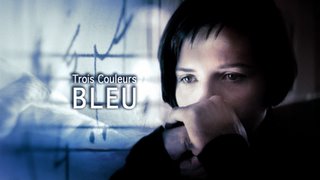Krzysztof Kieslowski at the NFT
 March is an exciting month at the NFT as they are revisiting the works of Polish film director, Krzysztof Kieslowski. This is, I think, one of the highlights of the modern age (second only to last June’s Michelangelo Antonioni retrospective; an event that still makes me giggle with geekish nostalgia) and paradoxically, one of the great tragedies. Kieslowski’s films frequently encourage comparisons with the likes of Hitchcock – an association that is well noted, especially in the case of White and Red – yet, if you were to casually assume that your sad friend down at the pub had even heard of the Polish director, much less preferred him over the legendary Hitch, I think you’d have likely overestimated your drinking coterie.
March is an exciting month at the NFT as they are revisiting the works of Polish film director, Krzysztof Kieslowski. This is, I think, one of the highlights of the modern age (second only to last June’s Michelangelo Antonioni retrospective; an event that still makes me giggle with geekish nostalgia) and paradoxically, one of the great tragedies. Kieslowski’s films frequently encourage comparisons with the likes of Hitchcock – an association that is well noted, especially in the case of White and Red – yet, if you were to casually assume that your sad friend down at the pub had even heard of the Polish director, much less preferred him over the legendary Hitch, I think you’d have likely overestimated your drinking coterie.Enter: The Tragedy
One might ask why this is the case. My answer is, despite the overwhelming desire to reductively solve every such mystery, 'Who the crap knows?!' Not I. Why did it take Steven Spielberg and friends to help ‘revitalize’ Akira Kurosawa’s career in the 80s? Why does Miramax insist on marketing films like Hero and Chungking Express in the US with Quentin Tarantino’s name across the top of the dvd cover instead of the prolific and brilliant Chinese directors, Zhang Yimou and Wong Kar-Wai? These are just a few more questions I had while pondering why your lame friend doesn’t know who Krzysztof Kieslowski is.
 Much like the complete contentment I find in Bob Dylan’s, Time Out of Mind, when I’m engrossed in the Three Colors Trilogy I can’t think of anything else I’d rather be watching (I must also say that Red is my favorite and, going against the critical grain here, I enjoy White more than Blue). Part of this is because of the way that Kieslowski deals with the human condition. In Krzysztof’s world there is no sense of immunity to the travails and/or successes of life. That is to say, bad things happen to good people and sometimes vice versa – a sad, stinking certainty to be sure. Although this seems to suggest a certain level of amorality, Kieslowski navigates the troubled realities of social decency in a way that often reflects the Christian themes found in the films of Andrei Tarkovski. The monumental achievement that is The Decalogue, ten short films loosely based on the ten commandments, further illustrates a delicate attention to the moral aspects of life as well as the difficulties and paradoxes that one often faces when striving only to be an upstanding and civil member of society. And, although these themes often present themselves through the intimate conflicts of everyday characters, Kieslowski never fully indicts the viewer in this voyeurism (unlike Hitchcock, bless him) which tends to endear rather than alienate.
Much like the complete contentment I find in Bob Dylan’s, Time Out of Mind, when I’m engrossed in the Three Colors Trilogy I can’t think of anything else I’d rather be watching (I must also say that Red is my favorite and, going against the critical grain here, I enjoy White more than Blue). Part of this is because of the way that Kieslowski deals with the human condition. In Krzysztof’s world there is no sense of immunity to the travails and/or successes of life. That is to say, bad things happen to good people and sometimes vice versa – a sad, stinking certainty to be sure. Although this seems to suggest a certain level of amorality, Kieslowski navigates the troubled realities of social decency in a way that often reflects the Christian themes found in the films of Andrei Tarkovski. The monumental achievement that is The Decalogue, ten short films loosely based on the ten commandments, further illustrates a delicate attention to the moral aspects of life as well as the difficulties and paradoxes that one often faces when striving only to be an upstanding and civil member of society. And, although these themes often present themselves through the intimate conflicts of everyday characters, Kieslowski never fully indicts the viewer in this voyeurism (unlike Hitchcock, bless him) which tends to endear rather than alienate.
This endearment has a comforting effect that, unlike Spielberg’s cockeyed imperialism, comes across as tactful and genuine. Similarly, Kieslowski handles the intertwining lives of the characters with such care and sincerity that it makes Tarantino’s scavenged methods look vulgar and opportunistic. But these are the filmmakers that get distribution and subsequent recognition by that same fella in the pub, not Kieslowski. And while many will argue that the tragedy lies in Kieslowski’s premature death, I would have to say that the true misfortune is that many will never even realize he was here to begin with.
If you find yourself in or near London during the month of March the good news is that you can take your friend to the NFT to rediscover one of the great filmmakers of our time. He/She’ll thank you afterward, and maybe buy you a drink.
If you find yourself in or near London during the month of March the good news is that you can take your friend to the NFT to rediscover one of the great filmmakers of our time. He/She’ll thank you afterward, and maybe buy you a drink.
Tagged under:
Art, Culture, Film
Labels: Critical Studies, News



